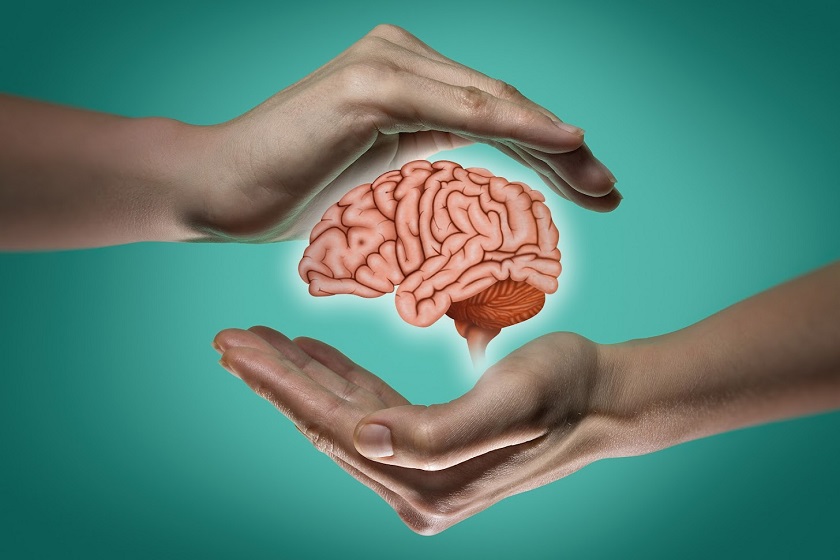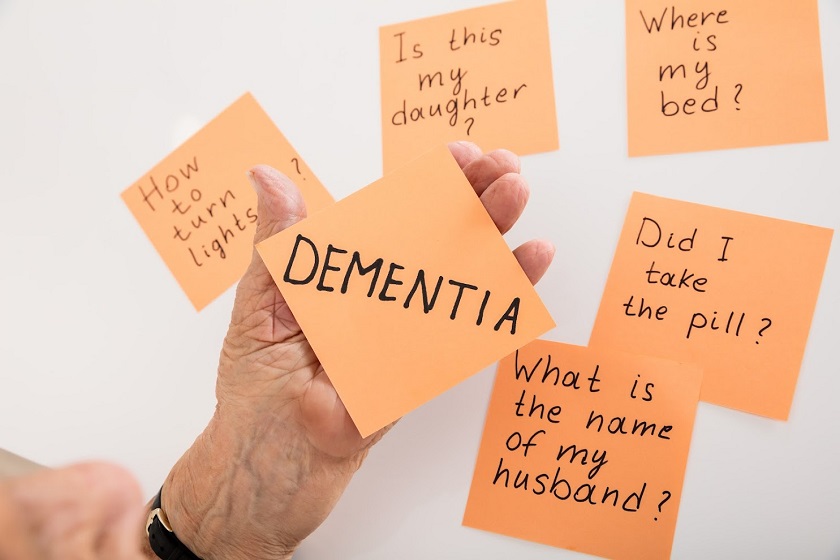
Best Cognitive Tests For Dementia And Alzheimer’s Diagnose
There may come a time when we notice hints of cognitive impairment in our loved ones, family members, or even ourselves. And that is the time for cognitive tests for dementia to prove their value. These tests are tools for measuring this frightening impairment formally and objectively.
There are a variety of cognitive tests for Alzheimer’s, ranging from simple bedside assessments that take a few minutes to in-depth neuropsychiatric testing that might take a few hours.
Imaging the brain (MRI, CT, or PET) can give information about the brain’s structure, and some types of brain imaging can even show how the metabolism and blood flow work. However, cognitive tests are still the best way to see how well an individual does in certain aspects and are still needed to diagnose dementia.
Also, Alzheimer’s Disease cannot be diagnosed with a single test. Physicians (often with the help of specialists like neurologists, neuropsychologists, etc.) use different cognitive tests to diagnose dementia or Alzheimer’s. Although doctors can nearly always tell whether someone has dementia, pinpointing the exact reason can be difficult.
This article will tell you about some of the different types of cognitive tests and give you a clear idea about each test’s procedure.
Contents
What Is a Cognitive Test for Dementia?
Cognition is a collection of brain processes that include thinking, memory, judgment, language, and the ability to learn new things. Cognitive impairment refers to issues with learning and memory.
Your cognitive impairment could range from mild to severe. Cognitive testing for dementia will assist in detecting any mental issues.
What Is the Purpose of Cognitive Testing?
Using cognitive testing, healthcare professionals can tell whether you have mild cognitive impairment or are at risk for a more severe case.
The first step in helping a doctor decide whether you need additional evaluation is determining whether you have cognitive impairment.

Do I Need Cognitive Tests for Alzheimer’s?
Your doctor might suggest a cognitive test or administer one if you display symptoms of cognitive impairment. These symptoms and signs may include:
- Finding it hard to remember dates and events
- Losing items more frequently
- Having difficulty finding the right word that you usually know
- Becoming more forgetful in conversations, movies, and books
- Struggling with irritability, mood swings, and increased anxiety
What Should I Do to Prepare for a Cognitive Test?
You’ll need no preparation for a cognitive test. All you have to do is to remember to bring your glasses and hearing aids (if you use any) and get a good night’s sleep.
You might want to schedule your cognitive test appointment when you feel most alert.
What Should I Expect During a Cognitive Test?
While there are numerous cognitive tests, they all involve answering simple questions and performing simple tasks. They help gauge your cognitive abilities in language, memory, and object recognition.
Every test has its own set of questions covering a range of subjects and a different assessment method. During one exam, you must memorize a short list of words and identify animal pictures. You may have to re-draw an object or item. Some other tests may require you to count backward, identify various objects, and provide the current date. On another test, you must memorize a three-word list of different things and then draw a clock. And likewise, each test may provide different types of examinations.
Different Types of Dementia Tests
Doctors most commonly use the following tests:
- Montreal Cognitive Assessment (MoCA)
- Mini-Mental State Exam (MMSE)
- Mini-Cog Test
- SAGE Test
- GPCOG
- Online Cognoscopy Test
These tests are quick, and the doctor can administer them at the patient’s bedside to evaluate memory and other cognitive functions, lasting about 15 minutes.
They provide a score used to distinguish between those who have normal cognition and those who have impaired cognition and screen for mild cognitive impairment (MCI).
The Mini-Mental State Examination (MMSE) and the Montreal Cognitive Assessment (MoCA) are two of the most widely used tests (MMSE).
Screening tests are not specific for any form of dementia or other medical condition, but they can provide strong evidence of cognitive impairment if they turn up abnormal.
It is also possible to repeat these tests to track the disease’s progression over time.
These tests evaluate one’s capacity for memorization, communicating thoughts, making plans, and staying focused.
MMSE test
A health care professional will ask a patient questions during the MMSE to assess various everyday mental abilities. The highest possible MMSE score is 30.
This test will take approximately 7 to 10 minutes. Among the specific categories are orientation (10 points), memory (6 points), attention/concentration (5 points), language (8 points), and visuospatial function (1 point).
A score of 20~ 24 suggests mild dementia, and a score of 13 to 20 means moderate dementia. Also, a score of less than 12 implies severe dementia. Each year, an Alzheimer’s patient loses about two to four points on the MMSE.
MOCA (Montreal Cognitive Assessment) Test for Dementia
The MOCA test also has a 30-point scale for grading and takes roughly 10 to 15 minutes.
The points are as follows:
Word recall/memory (5 points), visuospatial function (7 points, including drawing a clock), language (6 points), attention/concentration (6 points), and orientation (6 points).
A score of less than 25 is abnormal and indicates severe cognitive impairment.
Mini-Cog Test
The Mini-Cog is a 3 to 5-minute test. During the examination, a person must perform two tasks:
- Remember the names of three everyday objects, then repeat them a few minutes later.
- Draw a clock face with all 12 numbers in the correct order and the time specified by the examiner.
The results of this brief test can assist a physician in determining whether an additional evaluation is required.
SAGE Dementia Test
The SAGE test evaluates mental capacities such as thinking, memory, and cognition to spot early indications of dementia and Alzheimer’s Disease.
The Ohio State University (OSU) Wexner Medical Center’s Douglas Scharre and his team created the test.
Compared to cognitive tests like the mini-mental state examination (MMSE), the test is a little more complicated. That’s to ensure the test can identify even the slightest cognitive impairment.
GPCOG Test
GPCOG is a screening tool used by primary care physicians that is available in multiple languages. In this test, the doctor should only ask each question once. During the examination, the patients should wear their glasses and hearing aids.
To complete this task, patients must remember a name and place given to them by their doctor. They’ll have four chances to get it correct.
Healthcare practitioners will question them about the current date, tasked with positioning a 12, 3, 6, and 9 in the appropriate locations on the clock, and required to set the hands of the clock to a predetermined time in addition to answering questions about the date.
People undergoing a GPCOG test will be asked to share recent newsworthy events with the healthcare practitioner (within the last week). The healthcare provider can ask for more details if they give a general answer.
After completing these tasks, the healthcare provider will ask for the name and address that the doctor instructed them to remember at the start of the test.
Online Cognoscopy Test
Cognoscopy, developed by Dr. Bredesen, can help identify the underlying causes or risk factors for Alzheimer’s Disease, making treatment or prevention easier.
Additionally, it offers short-term assessments to help diagnose patients’ memory issues.
A cognoscopy, according to Dr. Bredesen, is the first step in monitoring brain health and screening for early signs of Alzheimer’s Disease. The test includes blood work, genetic tests, and a cognitive assessment to determine the likelihood of developing Alzheimer’s Disease. Depending on your insurance coverage or place of residence, the cost of these tests may vary.
You can take a free online cognitive assessment test here.
What Do My Cognitive Testing Results Mean?
If your results are acceptable, no further testing is necessary.
If the results of your tests are abnormal, there is a chance of cognitive impairment. These tests cannot determine the impairment’s underlying cause. It simply informs your healthcare provider that an impairment may exist.
At this point, your doctor may recommend additional testing or a referral to a specialist.
Some cognitive impairments are treatable because curable medical conditions bring them on. Some of them are:
- Thyroid disease
- Current medication side effects
- Vitamin Deficiencies
There are no cures currently available for other types of cognitive impairment, like dementia. On the other hand, early detection and a proper treatment plan may help slow down cognitive decline.

What Are the Advantages of Early Diagnosis?
Early detection of moderate cognitive impairment or dementia has several advantages. The following are only a few of them:
- Patients get benefits and treatment options sooner.
- Patients and family members can investigate and understand the diagnosis before symptoms worsen.
- There is more time to plan for the future.
- An earlier diagnosis gives you additional options for clinical trial participation, should you choose.
- You can plan transportation, living arrangements, financial and legal problems, etc.
- Learn about your medical team and help them establish a devoted network of family and friends.
Final Words
Since there are numerous causes of cognitive impairment, mild or severe cognitive impairment does not mean you have dementia. Alzheimer’s is the most prevalent dementia affecting the brain’s cognitive regions, but it could result from a medication side effect, depression, or dementia.
Are you experiencing any cognitive decline? Is your loved one showing any dementia symptoms? What do you think of these cognitive tests? Let us know in the comments.

We were suspicious of my dad’s dementia last year. Gradually, he began to forget some information and misplace some of his personal belongings. We were suggested to take these tests by a relative. I think it was the MMSE test that saved us. My father was diagnosed with dementia after we discussed the results with a doctor. He started regular appointments and is under his health provider’s observation now.
It’s super easy to take these tests. They are beneficial and have enough accuracy. Yet, I wish there was an online version of these tests!
Apart from being accurate, these tests are easy to take at home, which is what I like most about them. Most of them only require a pen and paper!
I still wonder how a simple clock drawing can indicate Alzheimer’s!
About three-quarters of people tested with the Mini-Cog are correctly diagnosed with dementia! Therefore, whatever it is and does, it’s working.
It’s so heartwarming that many resources, games, and tests are available to support families and patients.
MMSE’s important role in the history of medicine should be acknowledged, and it deserves an honorable retirement. As a result, more effective tools will replace them, which are less time-consuming, easier to use, free of charge, and more equitable.
It’s one of the easiest and shortest tests I have ever done!
Even though there is no cure for this deadly disease, there is hope that early diagnosis can be achieved with these tests, and symptoms can be reduced to some degree.
While I appreciate the information and recommendations provided in this piece, I have some concerns about using these tests to diagnose cognitive decline. While cognitive tests can be a helpful tool in diagnosing cognitive decline, they should be used in conjunction with a comprehensive evaluation and a patient-centered approach to care. Thank you for providing this opportunity to share a different perspective on this critical topic.
I appreciated the Mini-Mental State Examination (MMSE) section as it was the test used to diagnose my family member. While it was challenging to go through the diagnosis process, I’m grateful that we identified the problem early on and got the necessary support and care
Looking back, I wish we had known about these cognitive tests. It would have been helpful to understand better my grandmother’s cognitive abilities and how they changed over time. Perhaps we could have even detected the onset of her dementia earlier and sought treatment sooner.
For anyone who suspects that a loved one may be experiencing cognitive decline, I highly recommend reading this article and learning about the different cognitive tests available. It could make all the difference in helping your loved one receive the care and support they need.
I recall my father’s initial evaluation for dementia as a standout memory. The cognitive tests he underwent were not only helpful in determining the severity of his condition, but they also gave us insight into what areas of his brain were affected. This information was instrumental in developing a care plan that addressed his specific needs. I appreciate this article’s comprehensive list of cognitive tests and their respective advantages and limitations.
The article focuses primarily on traditional cognitive tests while neglecting the potential benefits of newer technologies such as brain imaging and biomarker testing. These technologies may provide more accurate and objective information about the presence and progression of Alzheimer’s disease.
One memory that stands out for me is watching my dear friend struggle to remember even the simplest tasks, such as how to use a telephone or where her keys were. It was heartbreaking to see her slip away, piece by piece until she could no longer recognize her loved ones or care for herself.
That’s why cognitive testing is so important. These tests can help identify early signs of cognitive decline, which can prompt early intervention and support.
I would encourage all seniors to prioritize their cognitive health and consider getting tested for dementia and Alzheimer’s disease. It may be an uncomfortable thought, but the earlier we catch these conditions.
These cognitive tests can be a critical tool in identifying cognitive decline before it becomes too severe and can help patients and families better prepare for the challenges ahead.
Thanks! I will be sharing this article with others who may find it helpful.